In many cases, machines are faster and more accurate than humans, able to do much of the work behind the scenes to save time, effort and cost. It’s no surprise then that machine learning is being deployed by many of the world’s best eCommerce websites.
Machine learning allows vendors to get on with what they’re good at; meeting the needs of the customer; all while being confident in the knowledge that the user and search data more accurately and efficiently matches products to customers’ specific needs.
A recent article in DigitalCommerce360 highlights that B2B and B2C eCommerce businesses need to improve customer experience to gain loyalty. Machine Learning promises to unlock a higher level of experience for both the customer and the retailer.
Classification
Machines can help in classifying products to make them easier for visitors to find on your site. Every one of your products must be placed into a classification bracket – ‘chainsaw’ for example – and then given a set of attributes that are tagged; the power source type, displacement, engine power and weight as well as the chain pitch, gauge and number of drive links - and the product description and photo. The list is long, and the time spent classifying, longer. But with the help of machine learning it’s possible to map the information from input to output – in a fraction of the time. Think how much quicker you can get new products loaded onto your site and for revenue to climb.
Personalization and Recommendations
Customers have a positive experience if you show you understand their needs and present them with relevant products. The more comprehensive an image a retailer builds of each individual customer’s habits, the greater the loyalty earned as pay back.
Machine learning enables truly personalized product recommendations in rapid time, suggesting or hiding products based on past purchases. “You bought this, so you might want this.”
Pricing
Machine learning can also help to analyze customer behavior around price points. Understanding what a certain purchaser is prepared to spend and the likelihood of them going over this threshold through previous buying history can save a lot of wasted efforts when it comes to marketing particular product lines.
Customer segmentation can help businesses determine which sector of their customer base is proving to be profitable or a sector that may need to be specifically targeted in order to be retained or encouraged to spend more.
Of course, the humans are still in control. A robust quality assurance (QA) process will ensure the machines are getting it right – we can’t eliminate the human touch just yet, but when it comes to the classification of complex product catalogues or providing the purchase data from particular customer segments, machine learning can prove to be a real game changer that constantly works away in the background in real-time. It is an enabler when it comes to providing a seemingly bespoke buying experience. The customer will be engaged and ultimately it will prove to be a priceless tool in helping to build customer loyalty.
Do you want to build customer loyalty? Talk to one of our experts today to learn how our eCommerce search solution can help. Or read about the other tools you have in our article, The 5 Tools All eCommerce Professionals Need In Their Toolbox.


